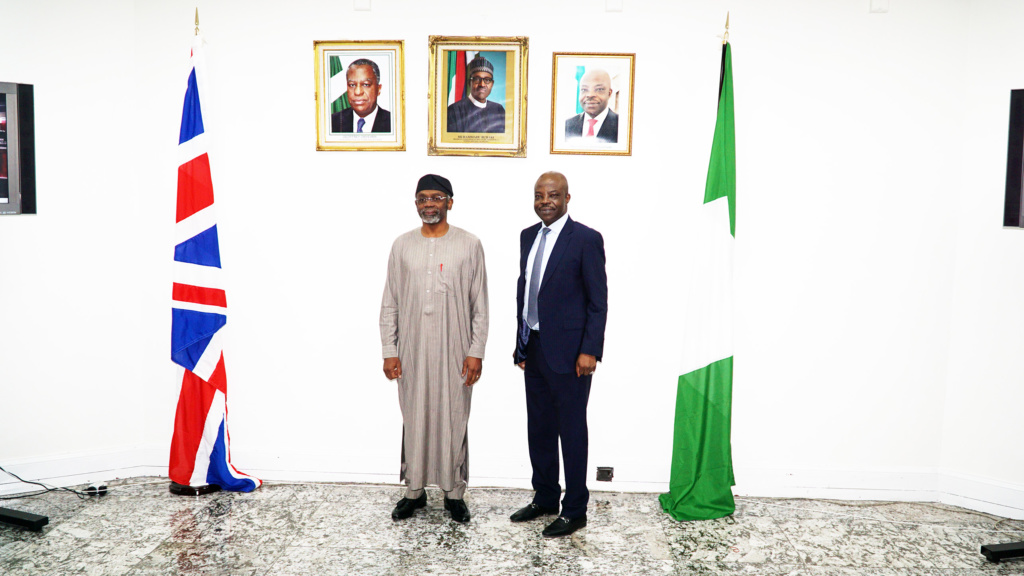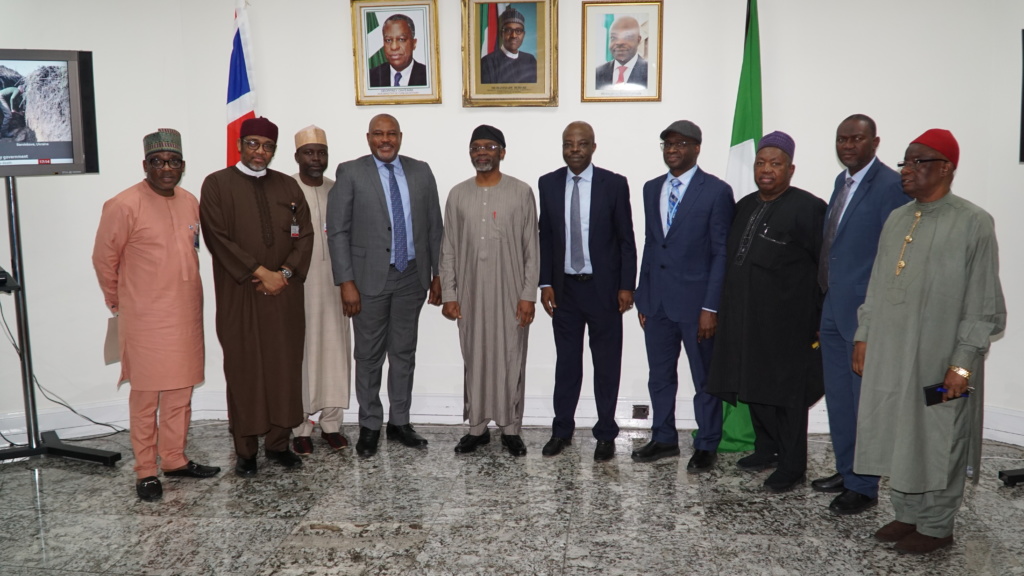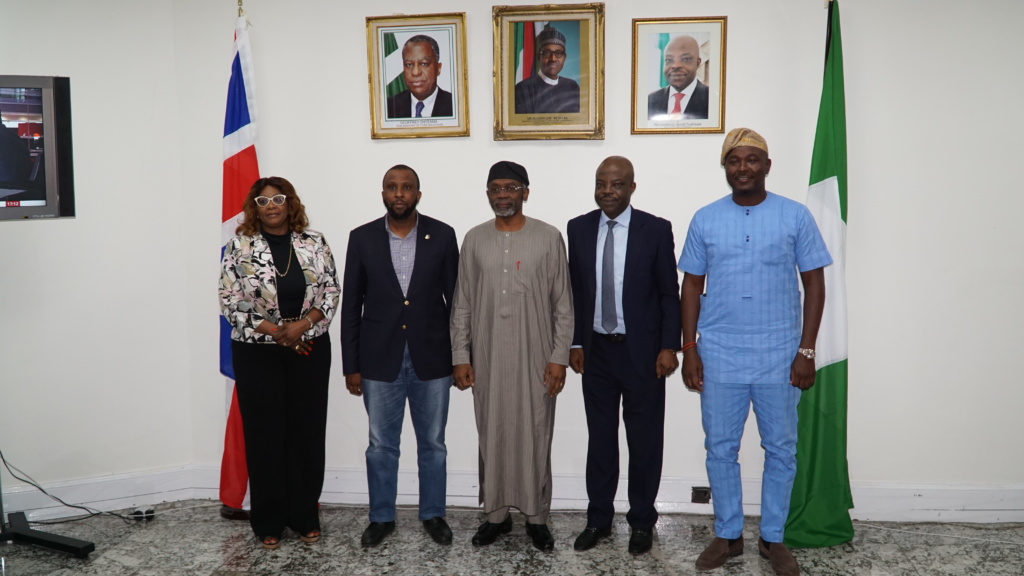
By Milton Tella – A delegation led by the Speaker of the Nigeria House of Representatives, Honourable Olufemi Hakeem Gbajabiamila and some members of the House paid a courtesy visit to the Nigeria High Commission London on 25 April 2022.
His Excellency, Ambassador Sarafa Tunji Isola the Nigeria High Commissioner to the UK and some of the Heads of Section at the Nigeria High Commission London received the august visitors at the Conference Room of the Nigeria High Commission London.
Rt. Honourable Olufemi Hakeem Gbajabiamila discussed the Electoral Act, how the role of the National Assembly in nation building, voter education and enlightenment could help increase the rate of voters’ participation in the forthcoming 2023 elections.
He further briefed the diplomats on the importance of his visit to the United Kingdom, role of the Nigerian National Assembly in strengthening state-society relations, and its priorities for promoting greater civic trust and engagement in the process and outcome of the 2023 elections.
The Speaker of the House of Representatives, Olufemi Gbajabiamila, delivered a paper on the topic “Consolidating Nigeria’s Democracy: Prospects for Strengthening Nigeria’s Electoral Systems Ahead of 2023 Elections” at the Royal Institute of International Affairs (Chatham House) in London, April 28, 2022.
The visiting Speaker of the Nigeria House of Representatives, Honourable Gbajabiamila at the Chatham House where he addressed the challenges facing the nascent democracy in Nigeria and ways to resolving the insecurity in the country. He appealed for support from the international community and Nigerians in the Diaspora.
Honourable Gbajabiamila enumerated the government’s efforts to provide free, fair and credible elections. He called for more citizens participation in the electoral process, the involvement of more women, young people and people living with disabilities. On Diaspora voting, he said it would require an amendment to the constitution.
He said: “Voter education and enlightenment campaigns can help increase the rate of voter participation, getting more people to believe that there is power in the vote and that a ballot can change the course of a nation and improve the conditions of its people.
“Enhancing citizen participation,” the Speaker said, “is also about ensuring that the nation’s diversity is reflected in the composition of its political actors. The variety of voices, perspectives and experiences can only improve the quality of debate and enhance the quality of outcomes.”
The Speaker also emphasized the need to review the campaign laws of the country, especially in the area of finances for elections.
“Clearly, we need to reform our campaign finance laws and the entire system through which we fund politics and political operations in the country. This would require amendments to both the constitution and the Electoral Act.
“To be effective, such campaign finance reform legislation will impose a financial reporting mandate on candidates and campaigns and impose severe penalties on violators,” Gbajabiamila noted”.
He said that it may help clean up the flow of money into the political process, adding, “but there is a real risk that this ends up making the process more expensive by creating regulatory compliance costs.
“So, as we consider this option, we will consider others too and remain open to new ideas.”
Looking back, the Speaker outlined the steps taken by the National Assembly to ensure substantial improvement to the Nigerian electoral system, saying, “After every election cycle, the National Assembly has initiated steps to document experiences, extrapolate lessons learned and, on that basis, amend the electoral laws to plug gaps and remove bottlenecks.
“Each electoral amendment effort reflects a considered attempt to provide a more robust statutory framework for elections. From the internal party processes to the final declaration of results and even pre and post-election litigation.
“At the same time, the Independent National Electoral Commission has in the last decade shown a remarkable willingness to learn from its own mistakes, embrace new technology, engage stakeholders and take proactive action to ensure public faith in the electioneering process.
“They, and indeed the legislature, have often been helped in our joint efforts by aid and support from our international friends who understand that Nigeria’s democracy has been hard-won and deserves to be protected by all prudent and necessary means.”
Ambassador Sarafa Tunji Isola in his welcome remark, thanked the Rt. Honourable Olufemi Hakeem Gbajabiamila and members of the team for making time to visit the Nigeria High Commission London. The Nigerian Ambassador to the United Kingdom who was also present at the Chatham House, particularly commended the informative briefings.
Kindly follow us on twitter:@AfricanVoice2













